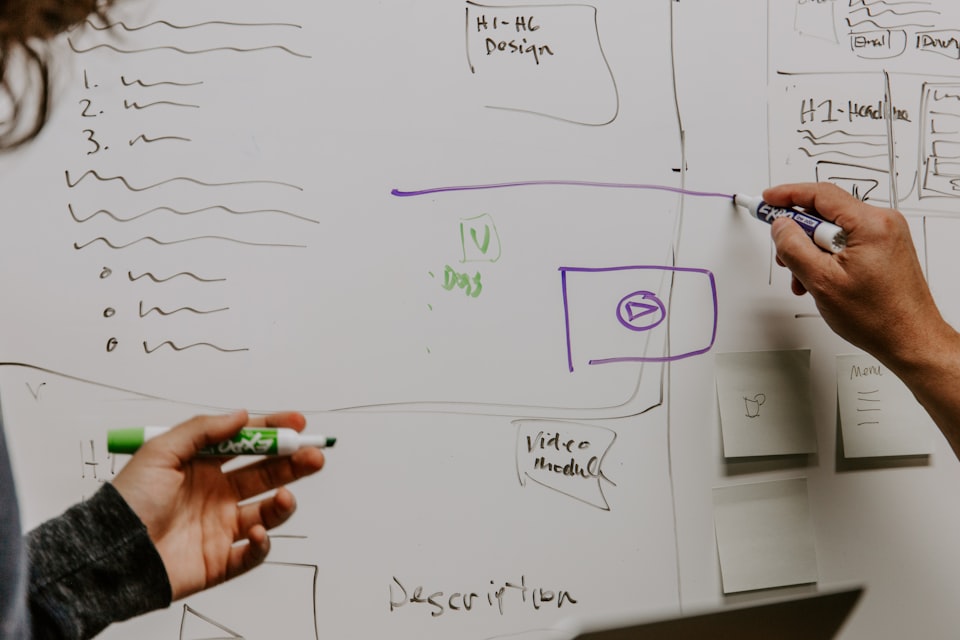How To Conduct an Interview: Top 10 Tips for a Great Candidate Experience

In this post, I'll share my top tips on how to conduct interviews and create a great candidate experience. A successful hiring process involves many steps — from the initial contact and multiple interview rounds to the final decision. Today, however, our focus is solely on managing the interview itself. I'll provide broadly applicable advice suitable for various industries and companies. While some tips may seem basic, I encourage you to read through to the end for the full benefit.
#1. Review the Candidate’s CV in Advance
Perhaps I’m starting with a very obvious one, but this is one of the most common errors that people make. Block at least 5 minutes before the interview to review the candidate’s resume. If it’s an in-person interview, don’t show up with a printed copy – it just looks weird and induces stress. If it’s an online interview, don’t open it up during the call and read it in front of the candidate.
Being unprepared like this will make you and the company look unprofessional. You will also lose valuable time as you try to quickly fumble through their CV instead of focusing on running the interview.
#2. Don’t be Late
Not much to add here that isn’t obvious. Again, being late is another silly mistake that makes you and the company come off as unprofessional. You will lose time and ultimately the candidate won’t be given a fair chance. (Unless everyone in your company is always late, I suppose?)
#3. Check if They are Comfortable and Ready to Start
Before you start the interview, check with the candidate if they are comfortable and ready to start. Check if they need to quickly visit the restroom or get some water. I always ask this – even during an online interview. Why ask this? Well, the candidate may have just finished work or had another interview round with your company before you. Allowing them to refresh before you begin will ease things and ensure they can focus on the interview.
#4. Focus Only on the Interview, Turn off All Notifications
Once you begin conducting the interview you can’t allow anything else to compete for your attention. During the interview, I always set my Mac on Focus mode and put my phone on silent. I close all application on my computer except the meeting app and my notes app.
Taking notes and remaining fully focused and engaged is difficult. Start by taking only rough, quick notes until you build the skill to do more.
#5. Prepare Your Interview Agenda and Questions
You should have an agenda figured out ahead of time and share it with the candidate in the first minutes of your interview. For example, when interviewing software developer candidates, I might follow an agenda like this:
- Introductions and background [10 minutes]
- Behavioral questions/candidate’s work experience [20 minutes]
- Hands-on coding exercise [23 minutes]
- Questions from the candidate, wrap-up [7 minutes]
I will tell the candidate roughly what to expect by explaining these 4 agenda items, though it’s not necessary to tell them how long each one is expected to take.
For each of these segments, I’ll be prepared:
- I’ve already introduced myself, the company, and the team a million times so I know how to do it quickly. I’ve also, seen the candidate’s resume, so I may already mentioned something like "Your experience in X stood out in particular, looking forward to discussing more."
- For the behavioral part, I already know which questions I’m going to ask and which questions are my backup in case my main ones don’t quite fit.
- I know the coding exercise by heart and I’ve practiced multiple approaches.
- I know most candidates will ask more about the team, the tech, the benefits, the working conditions, etc. I anticipate some common questions and make sure I have a response ready.
My preparation is exhaustive. Learning how to conduct an interview as a manager was an even more time-consuming task than when I was a developer. Regardless, you must do all of this work to conduct a good interview. While it may seem daunting, remember that preparing everything is mostly a one-time effort. Once you perfect how to do one good interview, you can use the same template across hundreds of them. You then slowly learn how to change and adjust.
#6. Turn the Interview Into a Conversation
The worst interviews are the ones where the interviewer just asks questions and records answers. Everyone’s early interviews suffer from a variation of this. Avoiding this might be difficult if you’re learning how to conduct an interview for the first time, but practice will help you improve.
Here are two common scenarios and examples of how you use them to engage deeper:
- The candidate just finished explaining to you how they solved a problem using
X. You can now give them a follow-up like "Another solution that comes to my mind isY. Did you consider this?" You can let the conversation flow from there. - The candidate just wrapped up talking about their experience with technology
Z, which you are a big fan of. Share your enthusiasm with them! Give them a prompt to see what else they think is good or bad aboutZ. Share your thoughts and give them room to engage back with what they think.
But be careful – you don’t want to be doing too much of the talking. The key is to get it just right.
#7. Keep Your Eyes on the Clock
As you saw in tip #5, every element of agenda should have a time limit and it’s up to you as the interviewer to guide the conversation and ensure the agenda is respected. If the candidate is meandering too much as they answer questions then you have to interrupt, apologize, and redirect quickly. Remember, it’s in their best interest to follow your instructions and help you complete each round on time.
#8. Help Them Manage the Stress
Interviews are a stressful experience, especially for junior candidates. You will notice when people are too stressed and experiencing a lot of emotions. They will know that you see this, so pretending that you don’t won’t be productive. Instead, embrace it, but don’t patronize them. Help them manage through it and cut through the awkwardness.
This is a tough skill to master so I’d suggest having a couple of mentoring sessions with an experienced interviewer will help. But here are some high-level concepts:
- Be patient and kind, and don’t behave in a way that signals irritation – this will just put on more pressure.
- If they’re stuck on a problem, give them your hints through conversation, bit by bit. Just giving them a big hint out of nowhere might signal to them that they are not doing well and will add more stress.
- If they’re shutting-off during the discussion, follow up with thoughtful and reassuring open-ended questions. For example: "That issue sounds really complicated, but it’s great to hear you powered through it! Can you give me more details on the approach you used?"
Maybe you expect the candidate to handle stress for this role and that’s fine. That might be one of the reasons you reject them in the end. But that’s a conclusion you will reach at the end. Right now, as an interviewer, your job is to conduct a great interview and ensure a good experience for the candidate.
#9. Be Honest About the Team and Company
Candidates will usually ask about the tech, work-life balance, team processes, and employee happiness. Give them truthful and candid answers. If you try to embellish the truth way too much, people will recognize that you are just trying to sell to them.
#10. Guide Them to the Next Step
After the interview, make sure you the candidate know what’s going to happen next. If another interviewer is coming tell them about it and wait with them. If this was their last interview of the day, tell them about the next steps and when they can expect to hear back from the company.



Comments ()